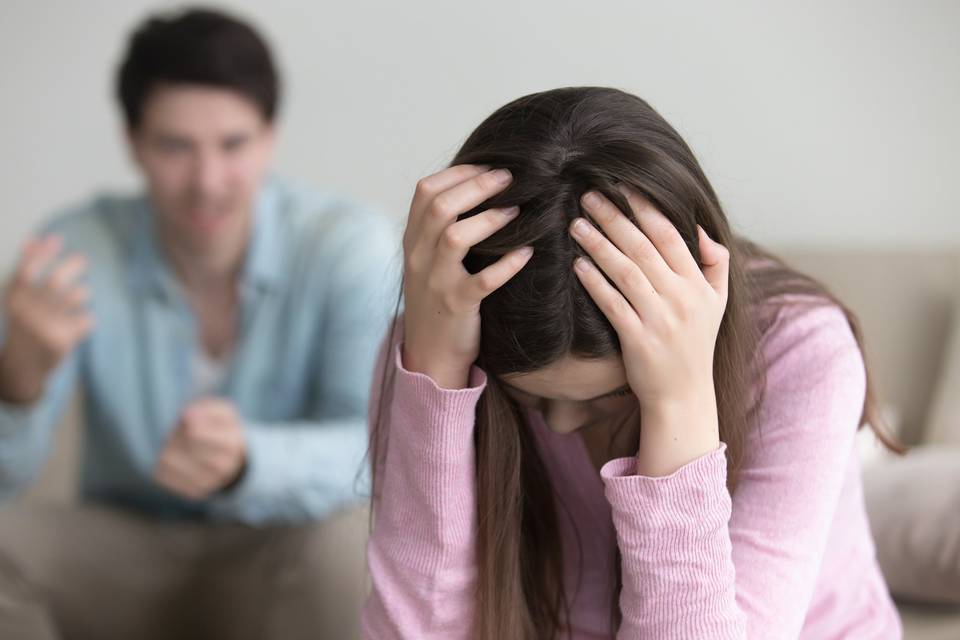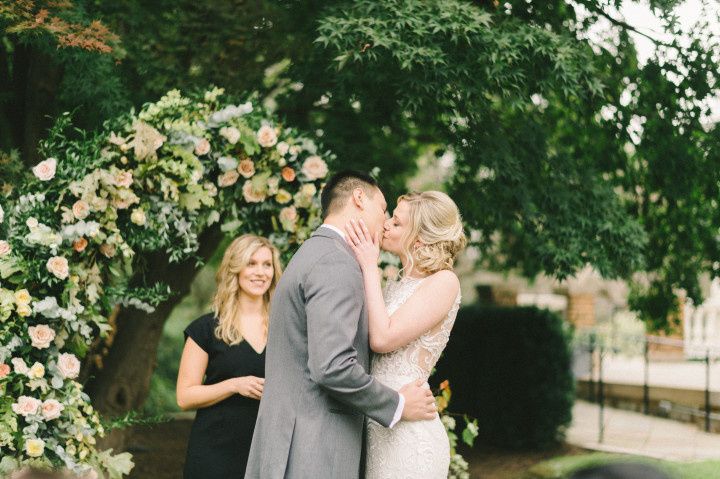7 Signs of an Emotionally Abusive Relationship—and What to Do About it
The signs of emotional abuse aren't always obvious. Here, experts share exactly what to look out for.


You’ve probably heard the term “abusive relationship” before, but likely associated it with physical abuse. It turns out, however, that there is more than just one type of abuse. In fact abuse can be verbal and emotional, as easily as it can be physical, notes Laura F. Dabney, M.D., relationship psychiatrist in Virginia Beach, Virginia.
Verbal abuse also goes by the term emotional abuse and it’s characterized by any form of an attempt to make one of the partners in the relationship weak or powerless or to minimize or humiliate them, Dr. Dabney goes on to explain. “It can be as simple as saying, ‘You’re so dumb’ or swearing and name calling, and as complex as a need to ‘one-up’ your accomplishments, or denigrate them, whenever possible,” she says.
While emotional abuse is quite common in relationships, it can be harder to identify than physical abuse, which can leave many partners staying in these abusive relationships without even knowing that they are abusive in nature. “Emotional abuse can often be hidden, covert, or gradual so that victims do not recognize it, and victims can experience blame and manipulation so frequently that they do not fully identify the negative patterns that are taking place,” says Shelley Sommerfeldt, Psy.D., clinical psychologist who specializes in relationships. “Many victims’ concerns can be dismissed and undermined that they may not believe their own memory to be true which can result in their making excuses for their partner's behavior or not recognizing that abuse even occurs.”
Whether or not you think you’re in an emotionally abusive relationship, it can be helpful to know the key signs. This may help you identify elements of emotional abuse in other relationships around you. Here are some of the most common signs of an emotionally abusive relationship, according to experts.
Your partner isolates you from your friends and family.
If, ever since you started to date you significant other, you’ve been encouraged to seclude yourself away from certain friends and family, this is a huge red flag. “These feelings and experiences indicate that there is a loss of liberties for one person while the other person is exerting power and control unreasonably and uncompromisingly,” explains Mayra Mendez, Ph.D., LMFT, a licensed psychotherapist and program coordinator for intellectual and developmental disabilities and mental health services at Providence Saint John's Child and Family Development Center in Santa Monica, California. “Seek help by talking to someone outside the relationship and begin to look for an out to recapture your individuation and independent existence.”
Your partner berates you and calls you names.
If you notice that your partner persistently calls you names, and it is not in jest or funny, this is a sign that your partner disregards, demeans and disrespects you, explains Dr. Mendez. “These behaviors by a partner suggest that the partner is seeking power and control over you by belittling and disparaging you—building themself up at your expense,” she says. “When this is the primary manner of interaction and engagement, it may be necessary to seek therapy help or counsel from friends and family especially if you feel victimized and believe less of yourself resulting from a partner who is persistently deprecating you.”
Your partner constantly tries to control everything you do.
In an emotionally abusive relationship, attempts to control the partner are commonly seen, notes Dr. Sommerfeldt. “There may be attempts to control behavior, finances, and other autonomous choices—for example, some people may attempt to control what the other person wears or how they act,” she says. “An abuser engages in controlling and isolating behaviors to get the victim dependent upon them and the relationship and, as a result, the victim cannot interact with others in a healthy way and becomes more reliant on the relationship with the abuser. Jealousy and accusations are typical emotional abuse tactics.”
Your partner gaslights you.
If your partner acts in complete confidence as if you have no idea what happened and acts shocked, mocking, or dismissive of your interpretation of the events with such intensity that you start to doubt your own experiences, this is known as gaslighting, explains Dr. Sommerfeldt. “It is normal for people to have some variation on how they remember things, but gaslighting is not just a difference of opinion—it is a complete break with the reality of what happened paired with shaming you for your memory of the events,” she says. “If you feel like you are being gaslit and are starting to doubt your own memory or experiences, try keeping a journal for yourself or telling a close and trusted friend when important things happen and, when you feel like your partner is gaslighting you, check in with these memory keepers.”
Your partner is always sacrificing your own needs.
If you feel as though you have to give up your interests, likes and friendships to accommodate your partner to prevent an argument or make them happy, this is a sign of emotional abuse, notes Anabel Basulto, LMFT, is a licensed marriage and family therapist at Kaiser Permanente in Orange County, California. “Remember that having independent interests is a sign of a healthy relationship,” she says. She recommends maintaining your individuality as best as you can for the optimal health of yourself and your relationship.
Your partner has no control over their jealous rage.
If you are constantly being accused of cheating and feel like your partner is monitoring your every move, this is a destructive form of controlling and abusive behavior. “If your partner is showing jealous words or behaviors, talk to them about it,” says Dr. Sommerfeldt. “If the person is a healthy partner, they will have insight into the irrationality of their behavior and that it is likely based on their fears and not your actions, and will be able to apologize and work on their ability to trust.”
Your partner publicly teases or humiliates you.
In a healthy relationship, your partner would never do either of these things, but an abusive partner will tear you down in front of others because it increases their sense of power and control over you, explains Dr. Sommerfeldt. “If your partner does this, tell them it is unacceptable (either in the moment or later when you are alone),” she says. “If they are a healthy partner, they will be able to apologize and cease the behavior, but if they gaslight, minimize or apologize without chaining their behaviors, then the relationship may be too abusive for you to tolerate.”
If you or someone you know are experiencing abuse, contact the National Domestic Violence Hotline, which offers confidential help 24/7.





